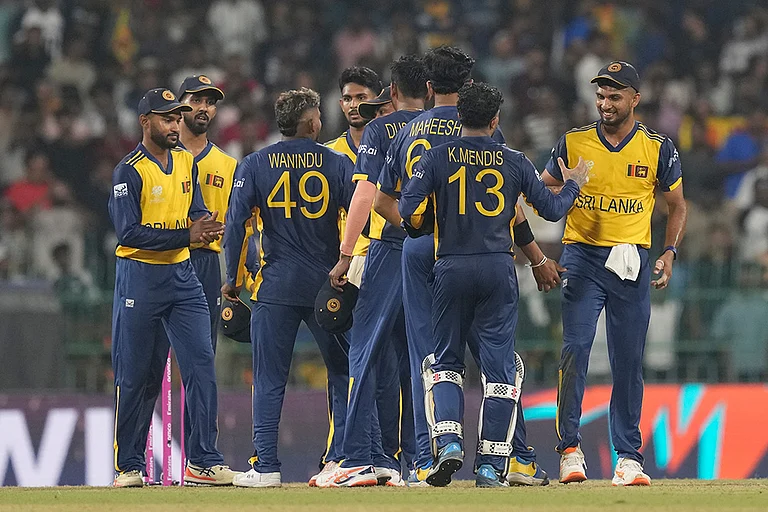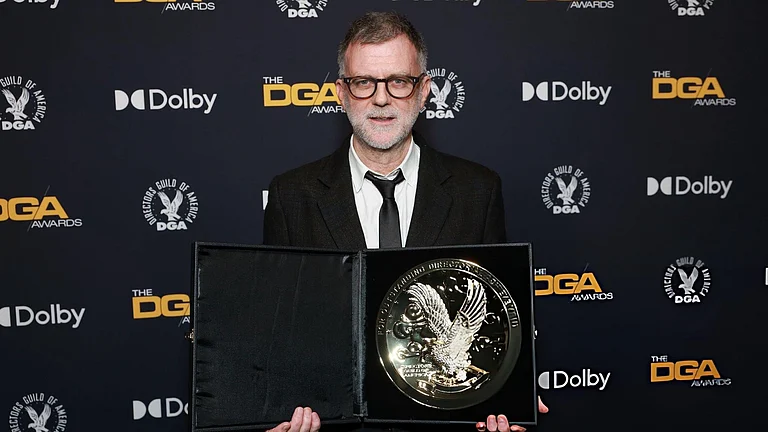IT has taken P.N. Krishna Murthy Sisyphean resolve and all of 26 years to prove his legal point against the might of an American relief agency which sought to get away with a violation of his copyright on a book designed, written and published by him. But victory is sweet, especially at the end of a battle as protracted as the one he has lived through. "I've come through, a bit bruised but happy that I now stand vindicated," he says without a trace of rancour. Surprising for a man who has lost the best years of his life in his quest for justice.
The case dates back to 1971, when Murthy was in his early 40s. Today he is pushing 70 and not in the best of health, but he's happy nevertheless to see CARE receive its comeuppance. The relief agency had printed unauthorised copies of his book on nutrition, designed and written for underprivileged children of Madhya Pradesh's Bastar district on a research grant from USAID, a division of the US embassy. Titled Lakshman Kills a Tiger, the book was illustrated by the celebrated Kashmiri painter G.R. Santosh and published in various Indian languages.
CARE entered the picture in 1970 through an agreement with USAID. The relief agency asked Murthy to publicise an American food item—"a mixture of corn, soyabean and milk powder"—in his book. He refused. They then demanded that he surrender his copyright. He refused again. Consequently, his association with USAID was summarily terminated. "I shot off several letters protesting against the termination," says Murthy.
The matter would perhaps have ended there hadn't CARE thrown all caution to the wind. It unauthorisedly printed copies of Lakshman Kills a Tiger in Malayalam, using Murthy's design and text. The author filed two cases in a Delhi sessions court—a civil suit for damages, which is still pending, and a criminal suit for infringement of copyright, which concluded in his favour on July 5, 1997, with Delhi metropolitan magistrate V.K. Maheshwari ruling in a 59-page judgement that "the complainant has proved beyond reasonable doubt that the accused had intentionally and knowingly infringed the copyright of the complainant".
The sentence in the criminal case was delivered on August 1. The penalty imposed on CARE, following its plea for leniency on the grounds that it is a charitable organisation, was a meagre Rs 5,000 which, as Murthy points out, is only $140. "The quantum of punishment was disappointing but I didn't challenge it. It's enough that CARE has been convicted," he says.
But Murthy, who has fought the case in person to avoid paying prohibitive lawyers' fees, isn't finished yet. "I feel the learned magistrate may have served the interests of justice better if he had tried to fix the responsibility on the party or parties who... delayed the case," he says. Murthy has now moved the Delhi high court. On August 11, Justice Anil Dev Singh called for the trial court's records to ascertain the veracity of the magistrate's observations on the delay and CARE's statement that it had destroyed all its related material records during the pendency of the case.
From the day Murthy filed his case, CARE, armed with "enormous resources and resourcefulness" tried every trick in the book—and some outside it—to slow down the proceedings. CARE's lawyer cross-examined Mur-thy twice and yet in March 1996 the agency moved an application seeking a third cross-examination. The plea was first rejected by the magistrate who held that "litigation should not be immortal when man himself was mortal". The high court and the Supreme Court upheld the magistrate's order. Earlier, CARE tried to foist a warrants case on the proceedings, whereas a copyright infringement is fit only for a summons case because the punishment on conviction is less than two years. In '90, the court held that a summons case can never be tried as a warrants case unless there is a special reason and it is recorded in writing by the court.
The legal ploys apart, CARE fabricated USAID documents and destroyed all material records. It is on these points that Murthy now hopes to nail the American relief agency. "Time will reveal that CARE committed perjury," says Murthy, who accuses USAID and the US embassy of shielding CARE.
Justice delayed, it is often said, is justice denied. But Murthy places his struggle in the larger perspective: "The creative human impulse has to be protected against mercenary and predatory interests". His battle could become a turning point of the war.


























